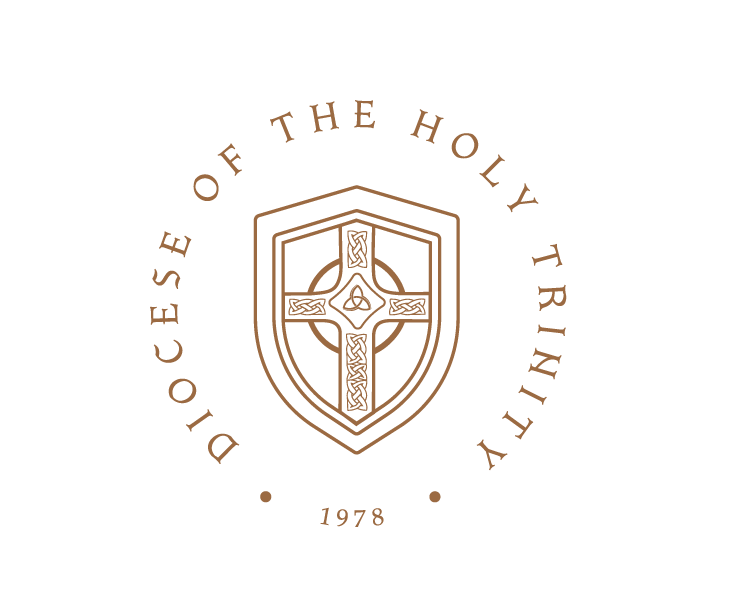Trinity Season Spirituality
We are now entering the six-month Trinity season. The challenge of Trinity is how to remain faithful during a long season in which there is no particular wake-up call.
Just about everything we do well we do according to some habit or pattern. Few people stay in good physical shape without an exercise routine; few people maintain their skill level in an activity without habitual practice. Faithfulness to Christ over time requires a commitment to some pattern of prayer and spiritual discipline.
The spirituality of the Bible is rooted in pattern and discipline. Acts 10 reveals that both St. Peter and the Gentile, God-fearer Cornelius observed the Jewish hours of prayer (Daily Offices), praying morning, noon and night. St. Paul writes, “Therefore I run thus: not with uncertainty. Thus I fight: not as one who beats the air. But I discipline my body and bring it into subjection” (1 Cor. 9:26-27).
Anglican faith and practice is rooted in the Rule or pattern of prayer established by St. Benedict. It is based on a three-fold Rule of prayer: Participation in the Eucharist; praying the “daily offices” of Morning and Evening Prayer; and practicing personal prayer, which ranges from conversation with God, to meditation about God, to silent contemplation. The goal of Rule is constant awareness of God’s presence and activity in our lives and in the world around us.
Our cultural practice of the faith is too deeply rooted in the pursuit of good feelings apart from Rule and discipline. Thus, when habits of prayer do not immediately produce good feelings, prayer is abandoned. Here we can learn by analogy to other skills. Initial infatuation with a musical instrument will give way to the need for a long season of rather tedious practice. The reward for sticking with it over time will be an acquired skill that brings real satisfaction and joy. Prayer is the same. If we stick with it, we will grow in prayer and the rewards of prayer will be experienced over time. But if we give up when it doesn’t feel good, we won’t grow beyond spiritual infancy. Progress in anything requires discipline.
Some people say they do not have time for prayer. This is never true. We always do what we truly want to do. We grumble about 15 minutes of prayer, but have no problem spending 2 or 3 hours with video games, sporting events, or just wasting time online. It is one’s personal choice to decide not to reorient one’s life around prayer, but this will be a conscious choice not to live the Christian life—which depends upon prayer. We feel a constant pull away from our prayer precisely because that is where the spiritual battle takes place. When we give up prayer, we concede the battle at the very beginning.
Here are six practical points of emphasis will help us to grow spiritually through the Trinity season:
One, commit to praying the daily offices. Fixed daily times to offer prayer and praise is the missing element in most people’s prayer. I know you get up early, work late, and “don’t have time.” I know the kids distract you. I know Evening Prayer is hard to fit in at the end of a busy day. But you can if you want to, and if you want to you will. And if you do, you will be glad you did when you look back in six months.
Two, practice some form of fasting at least one day a week. We observe Wednesday as a day of prayer and fasting for mission. It is of tremendous spiritual benefit to practice NOT doing and eating some of your favorite things at least one day each week. It helps us to detach from the consumer pattern and develop self-control. You will see the benefit over the long run.
Three, create some space for silence in your life each day—time when every noisy thing is turned off. Even 15 or 30 minutes will make a big difference.
Four, connect with other Christians regularly for prayer, Bible study, or just to hang out and talk. The coal that sits alone burns out, but the coal that is connected to other coals burns brightly.
Five, intentionally use your spiritual gifts and resources to serve others (1 Pet. 4:10). Look for the image of Christ in the people you meet each day (Matt. 25:40). Focus on giving to others in the name of Christ rather than on your personal “happiness”—and you will find that you are much happier (Lk. 6:38).
Six, when you fail to do any part of one through five above, don’t try to “make it up” or atone for it. Just start again with your Rule the next day. Live in the grace of God. This is horticulture, not legalism. Growth depends on perseverance through trial and failure, not perfect performance.
These habits will help to make the Trinity season a time of spiritual progress, rather than a gradual drift away from faith.

